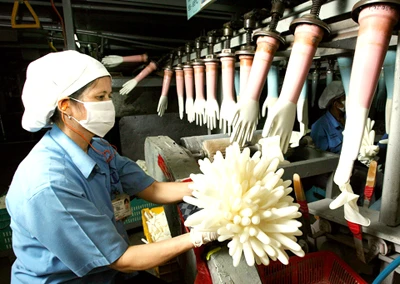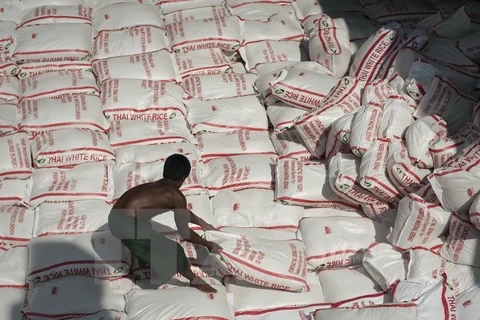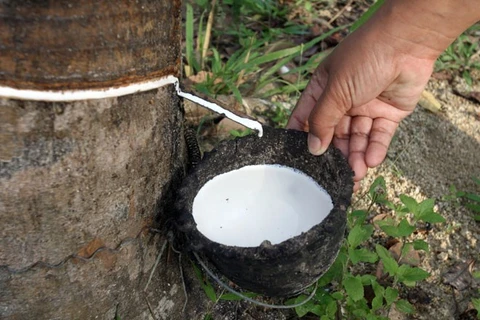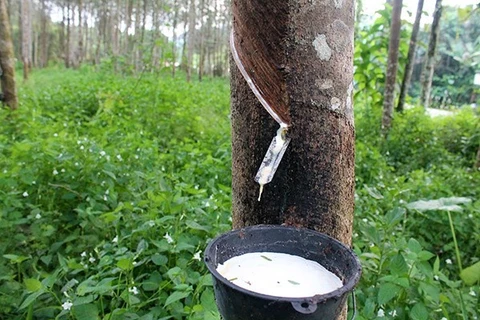Bangkok (VNA) - Thailand, Indonesia and Malaysia have agreed to cut exports of natural rubber by 615,000 tonnes for six months from March to reduce supplies and increase prices that are trading near six-year lows.
In a press interview on February 1, acting governor of the Rubber Authority of Thailand Chao Songarvut attested to the plan laid out by the three countries, who together account for more than 60 percent of global output.
He also revealed that Thailand will make about half the total cuts.
In a joint statement, the three countries said the initiative was to help intercept a decline in rubber prices which has “a direct effect on the income of rubber planters in the three nations.”
According to the International Tripartite Rubber Council (ITRC), Thailand will cut exports by 324,000 tonnes, Indonesia by 238,740 tonnes and Malaysia by 52,260 tonnes. The total cuts account for nearly 6 percent of global natural rubber output.
Besides cutting exports, the three countries also agreed to increase domestic consumption of rubber, including for road and railway construction.
From mid-January, Tokyo’s natural rubber price climbed 2.9 percent, reducing its drop for the year. But post-delivery rubber prices had fallen to 144.5 Yen (1.23 USD) per kg by January 21, the lowest since March 2009.
Meanwhile, prices in Thailand tripped for a fifth consecutive year, as over-supply resulting from a decade-long rally in prices encouraged producers to plant more trees.
Statistics from the Rubber Economist Ltd has shown the globe’s rubber output will exceed use for two more years, with the surplus quadrupling in 2016.
The world’s rubber consumption in 2016 is expected to reduce 1.3 percent to 12.6 million tonnes, while production expands 3.8 percent to 13 million tonnes.-VNA
























